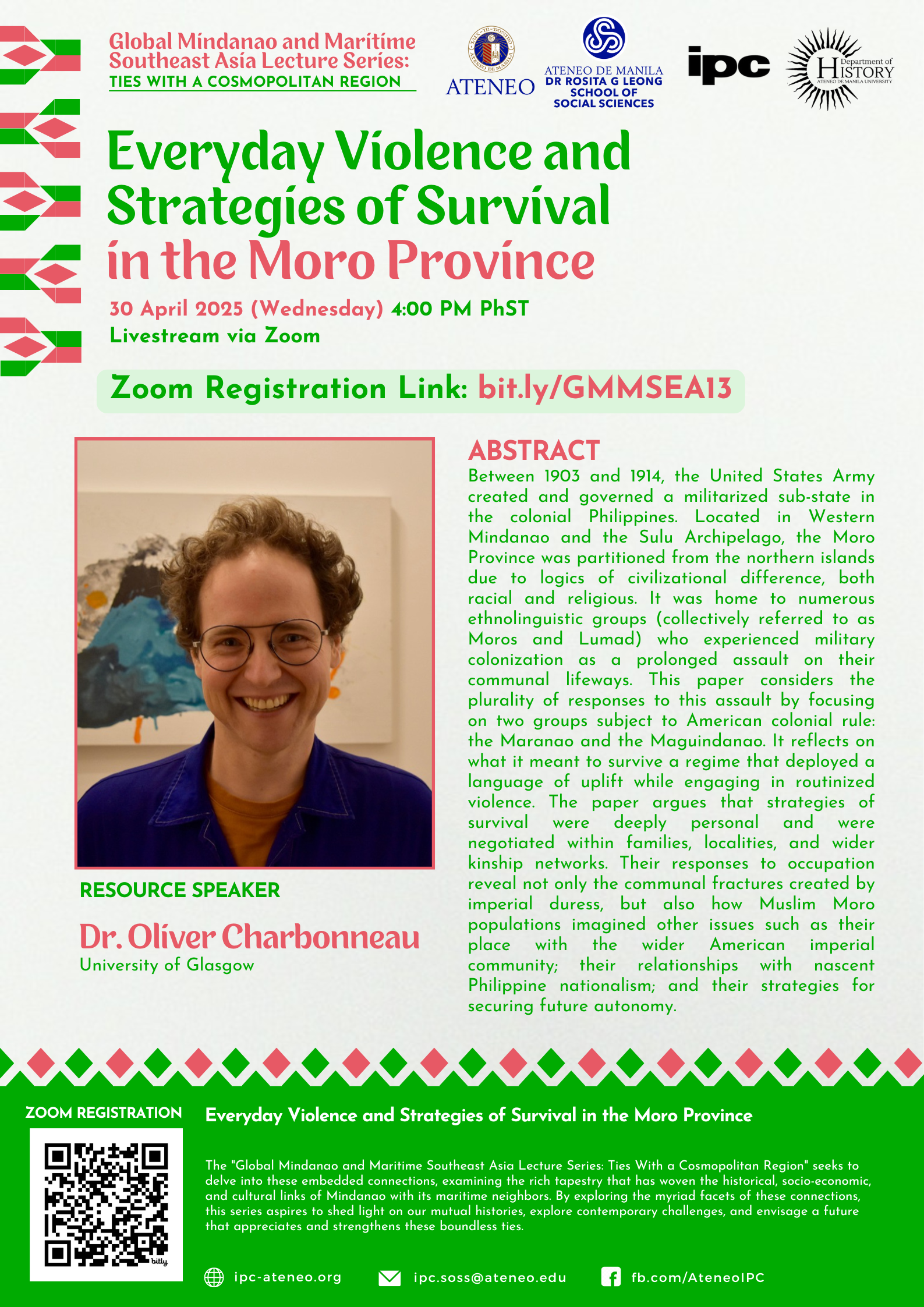RGL SOSS Global Mindanao and Maritime SEA Lecture Series: Everyday Violence and Strategies of Survival in the Moro Province

The Institute of Philippine Culture and the Department of History of the Dr. Rosita G. Leong School of Social Sciences invite you to a lecture on 30 April 2025 (4:00 PM - 5:00 PM) on
Everyday Violence and Strategies of Survival in the Moro Province
Abstract:
Between 1903 and 1914, the United States Army created and governed a militarized sub-state in the colonial Philippines. Located in Western Mindanao and the Sulu Archipelago, the Moro Province was partitioned from the northern islands due to logics of civilizational difference, both racial and religious. It was home to numerous ethnolinguistic groups (collectively referred to as Moros and Lumad) who experienced military colonization as a prolonged assault on their communal lifeways. This paper considers the plurality of responses to this assault by focusing on two groups subject to American colonial rule: the Maranao and the Maguindanao. It reflects on what it meant to survive a regime that deployed a language of uplift while engaging in routinized violence. The paper argues that strategies of survival were deeply personal and were negotiated within families, localities, and wider kinship networks. Around Lake Lanao, the ancestral homelands of the Maranao, datus (leaders) and their communities split over how to approach U.S. Army forces, leading to divergent experiences of occupation in villages sometimes separated by only a few miles. In the Cotabato region, home to the Maguindanao peoples, two leaders – one opposed to the United States; one willing to collaborate – produced spiralling polarization but also a third path: non-engagement and a retreat to spaces less impacted by colonial incursion. In keeping with other colonial contexts, American rule in the Moro Province produced a series of impossible choices for Maranao and Maguindanao peoples. Their responses to occupation reveal not only the communal fractures created by imperial duress, but also how Muslim Moro populations imagined other issues such as their place with the wider American imperial community; their relationships with nascent Philippine nationalism; and their strategies for securing future autonomy.
This lecture will be given by Dr. Oliver Charbonneau from the University of Glasgow.
Register for the Zoom simulcast via the link: bit.ly/GMMSEA13

